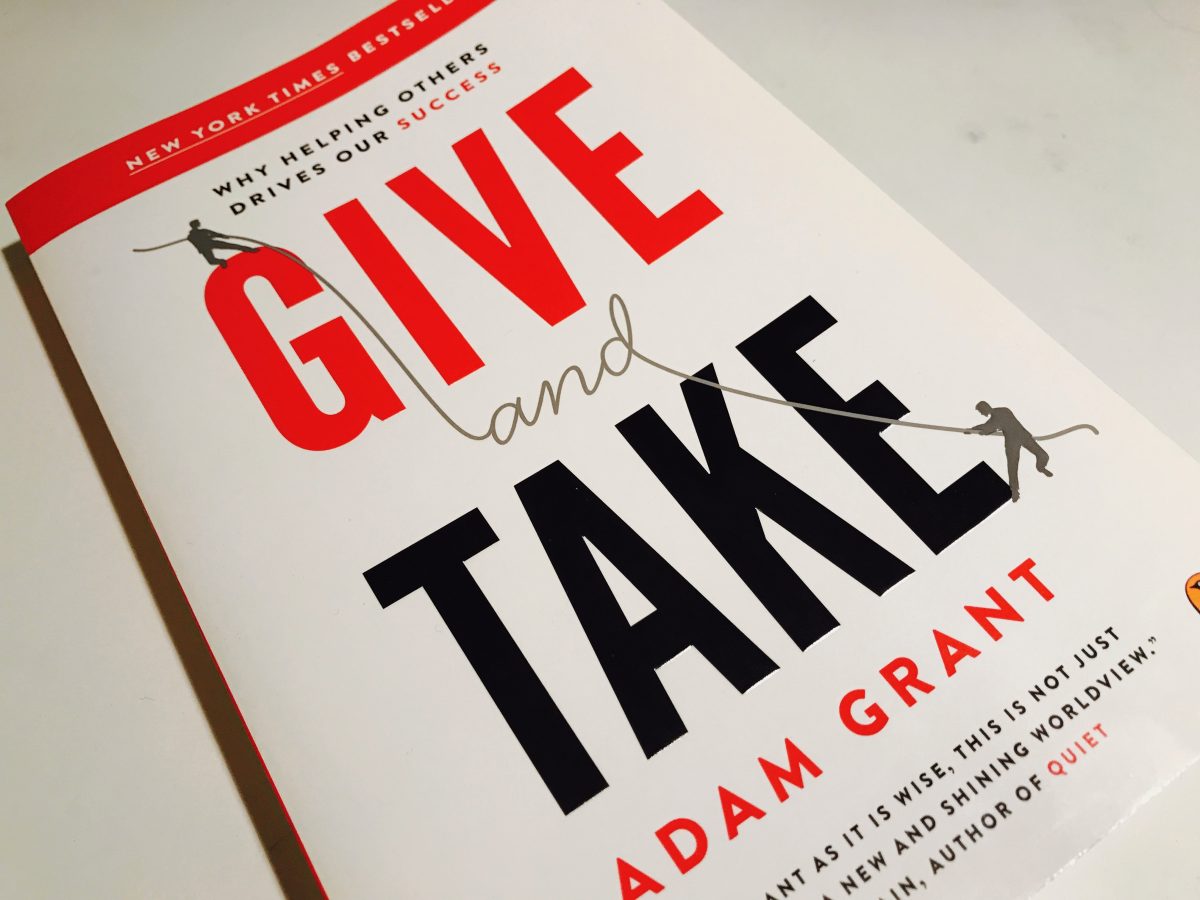In business and in life, you should be willing to do a five-minute favor for anybody.
Adam Grant’s 2013 Give and Take is an all-time favorite business book of mine. For those who have not yet read it, Kindle up a copy right now. I’ll wait.
For those who have, they know that it’s about so much more than just business. It’s about life and how we walk this Earth either as givers, takers, or matchers.
Not surprisingly, “givers” always look for opportunities to share their knowledge, experience, and assistance with those around them. “Takers” always have an eye out for what value they can derive from their network. And “matchers” view interaction as a scale where everything must be balanced in near-perfect reciprocation.
I won’t go into detail about the book here, but in short, while takers typically succeed in the near-term, givers will almost always win out over the long run. Give and Take helps explain how these sociological archetypes play out in business and why it’s better to become a giver if you aren’t one already.
One of the people who Adam repeatedly brings up throughout the book, is another Adam, this one entrepreneur and computer programmer Adam “Panda” Rifkin.
Rifkin had been deemed Fortune’s “Best Networker” of 2011. In that year, he had more LinkedIn connections to Fortune’s 640 most powerful people featured across their various annual lists. As you’ve likely surmised, Rifkin’s success stems from his place as one of the world’s foremost givers.
While Give and Take dedicates many pages to Panda, his sunny outlook, and the uber-successful “106 Miles” Meetup he founded and continues to run, I wanted to home in briefly on what he refers to as the “Five-Minute Favor”.

You should be willing to do something that will take you five minutes or less for anybody.
-Adam Rifkin
As Grant notes, Rifkin seeks to add value wherever he can. His North Star, a simple rule—the five-minute favor states “You should be willing to do something that will take you five minutes or less for anybody.” A powerful mantra, for sure.
I see it simply as “do good deeds” or as The Golden Rule: “Do unto others as you would have them do unto you.” Except with this, Rifkin makes this ethereal concept so much more practical and tangible. Don’t wait around for someone to ask you for a favor, instead pay it forward and just do it.
Grant and Rifkin drill down to a few specific “Five-Minute Favors” that I have since folded into my life, and from which continually derive so much joy.
The two I’d like to highlight here are similar, both easy, obviously, and both flip the script for what most people typically expect from networking and networkers, in what seems to be a “takers” game.
The first simply suggests that you find someone in your LinkedIn network who’s great at what they do, and write them a public recommendation. Wow, this is a powerful one. Every time I draft an unexpected recommendation, I get the most gracious thank-you-notes.
Not only is it always nice to feel recognized for our hard work, this five-minute favor holds real value. It might help your contact/friend/colleague land their next dream job.
Have you ever been searching or interviewing for a new job and messaged a colleague on LinkedIn to politely ask for a recommendation? However good-intentioned this might be, think about how the recipient might feel when she or he has to give up precious time from their busy day to write something nice and meaningful about you.
Imagine how much worse it might be for them if you were a taker. Woof. This eliminates all that negativity.
The second favor, while not quite as powerful, is even easier and thus something that no one should have an excuse for skipping out on—email a lapsed contact simply to say hello, find out what they’re working on, and ask if there’s any way you can be helpful.
How many times have you emailed an old contact asking them for a favor or had an old contact email you for the same? Personally, that number, though not egregious, is more than I’d like to admit, that’s for sure.
What makes this one so great, is the pleasant surprise your contact gets when they realize that instead of you taking a bite out of their apple, you’re offering up a bite from your own.
Try them. Both. Right now. I’ll wait. (Again.)
Strengthening the bonds of your network isn’t hard when you’re a giver, and The Five-Minute Favor might be the easiest and most rewarding first step to becoming one.

(Photo by Ocean Ng)
Like this post? Pin it.



Leave a Reply